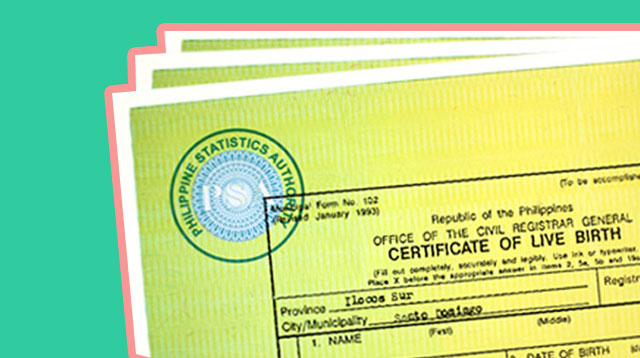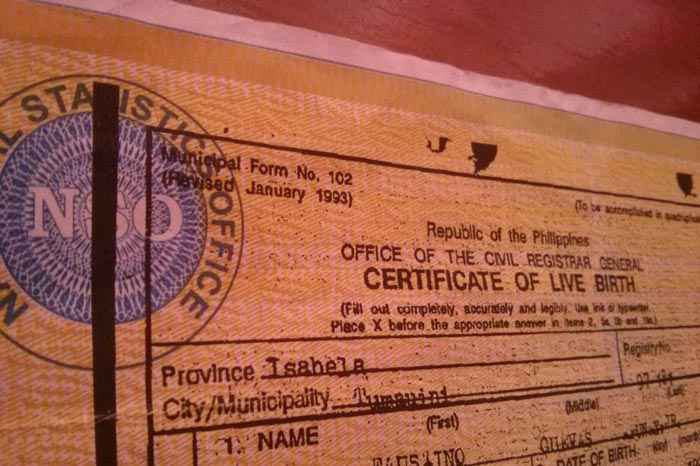The first breath of a newborn baby is a moment of pure joy, but what happens if the legal documentation of that arrival is delayed? For families facing circumstances that prevent timely birth registration, the process can feel overwhelming. Fortunately, there are avenues for late registration, albeit with specific requirements and procedures that need to be understood.

Image: www.smartparenting.com.ph
This comprehensive guide delves into the intricacies of late birth certificate registration in 2023, offering a comprehensive roadmap to navigate this process successfully. From the essential requirements and timelines to common challenges and expert advice, we aim to equip families with the knowledge they need to complete this crucial step.
Understanding Late Birth Registration: A Necessary Step
Late birth certificate registration refers to the process of officially registering a birth with the relevant authorities after the standard timeframe has passed. This is often necessary due to various circumstances, including:
- Unforeseen delays: Medical emergencies, travel complications, or administrative issues during the initial birth period can lead to the need for late registration.
- Lack of awareness: Families may not be fully informed about the importance of birth registration or the legal consequences of neglecting it.
- Migration or relocation: Families migrating to a new country or moving between states might encounter delays due to differing legal procedures.
- Past challenges: In certain scenarios, families might have faced situations like war, conflict, or natural disasters that prevented timely registration.
It’s crucial to understand that late registration is not always a simple matter of paperwork. The process varies depending on the jurisdiction and the reasons behind the delayed registration. Regardless of the reason, obtaining a late birth certificate is a critical step in securing legal rights and access to essential services for a child.
Navigating the Process: A Guide to Requirements and Timeline
Essential Documents for Late Registration
The specific documents required for late registration vary depending on the location and the age of the child. However, some common documents include:
- Birth affidavit: A sworn statement from the parents or guardians confirming the child’s birth details. This affidavit should be signed in front of a notary public or a designated authority.
- Medical records: Documents from a hospital, clinic, or qualified healthcare provider proving the child’s birth date and time. Medical records should include the name of the doctor or midwife who attended the delivery.
- Identification documents: Current valid identification for both parents or guardians, including passports, driver’s licenses, or national identity cards. The documents should prove their legal relationship to the child.
- Marriage certificate: Only required if the parents are married and the child’s birth is registered with their surname. This document must be officially certified and should match the information provided on the identification documents.
- Parental consent: If only one parent is present or if the parents are not married, a legally valid consent document from the absent parent is usually required.
- Court order (if applicable): In some situations involving adoption or parental rights, a court order might be necessary to authenticate the parentage and proceed with the registration.

Image: www.efrennolasco.com
Timeline for Late Registration
The timeline for late registration typically depends on the age of the child and the specific legal procedures in the jurisdiction.
Common Challenges and Solutions
Challenges can arise during the late registration process, including:
- Missing documentation: Locating original birth records, medical certificates, or parental documents can be challenging, especially if years have passed since the birth.
- Difficulties in obtaining affidavits: The process of obtaining a signed and notarized affidavit might require travel or communication with witnesses who reside in different locations.
- Legal complications: Circumstances like parental disputes, adoption, or changes in legal guardianship can create complex legal challenges that impact the registration process.
It’s crucial to take a proactive approach to addressing challenges.
Tips and Expert Advice for Late Birth Certificate Registration
Here are some valuable tips for a smoother late registration process:
- Start early: Don’t delay the process. Initiate the paperwork as soon as you realize the need for late registration.
- Organize documents: Gather all relevant documentation as early as possible. Make copies of all essential papers and keep them readily accessible.
- Contact the correct authorities: Identify the responsible agency or department in your location for birth registration. Contact their customer service for guidance on the procedures and necessary requirements.
- Seek legal consultation: If you encounter complex challenges with parental rights, legal disputes, or unique circumstances, consider seeking legal counsel from a qualified attorney specializing in family law.
- Be prepared for delays: The late registration process can take time due to bureaucratic processes, document verification, and occasional backlogs. Be patient and prepared for a potentially extended timeline.
These strategies are designed to streamline the process and minimize potential hurdles. Following a well-defined plan, you can increase the likelihood of a successful and timely late birth certificate registration.
Frequently Asked Questions
Q: When should I register my child’s birth?
A: Ideally, register your child’s birth as soon as possible after delivery. However, if you encounter delays, contact the relevant authorities to initiate the process of late registration.
Q: What are the consequences of not registering my child’s birth?
A: Failure to register a birth can have serious consequences, including:
- Denial of basic services: A child might be denied access to healthcare, education, and other social services without a legal birth certificate.
- Legal challenges: Lack of documentation can create complications with legal matters like obtaining a passport, adopting the child, or establishing inheritance rights.
- Identity theft: A child’s absence from official records can make them vulnerable to identity theft or fraud.
Q: What if I lost my child’s birth certificate?
A: If you lost the certificate, contact the issuing authority and provide the necessary documentation to request a replacement. Depending on the location, there might be a fee associated with this process.
Q: Are there deadlines for late registration?
A: The deadlines for late registration vary depending on jurisdiction and legal regulations.
Requirements For Late Registration Of Birth Certificate 2023
Q: What are the fees associated with late registration?
A: Fees for late registration can vary, so it’s best to contact the relevant authority in your location for accurate information.
== Conclusion ==
Navigating the process of late birth certificate registration can be complex, but with proper understanding and meticulous attention to detail, it’s a process you can successfully navigate. Remember, securing a birth certificate for your child is a crucial step in establishing their legal identity and ensuring access to fundamental rights and services.
Are you facing challenges with late birth certificate registration and need additional guidance? Share your questions or experiences in the comments section below.






